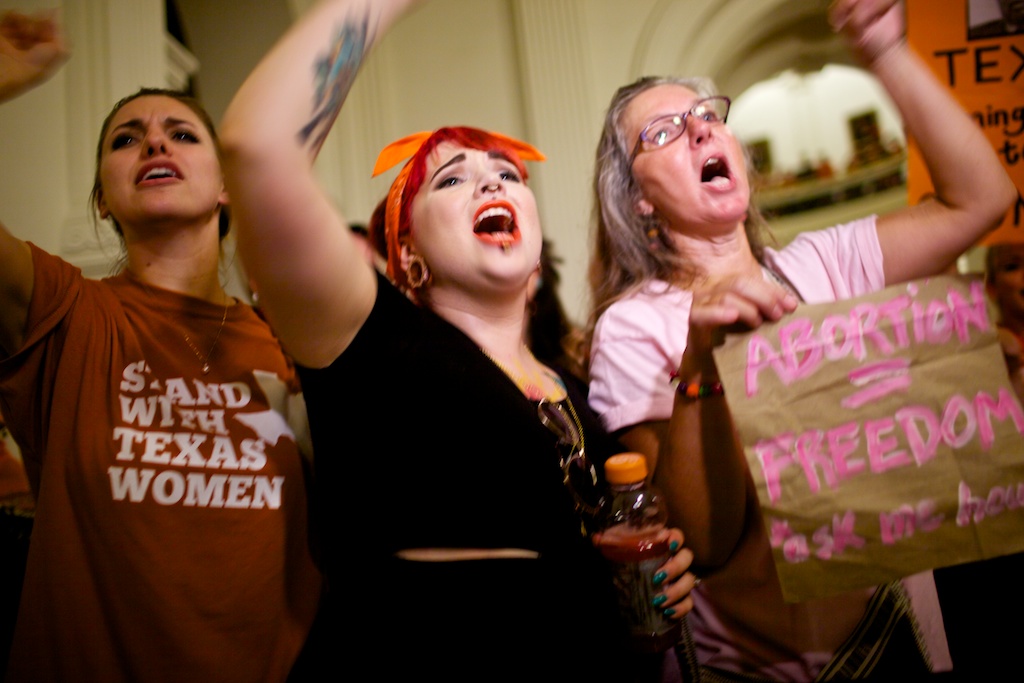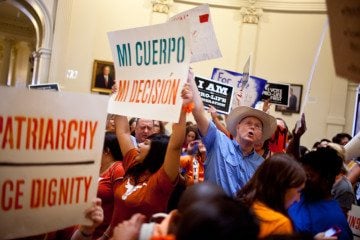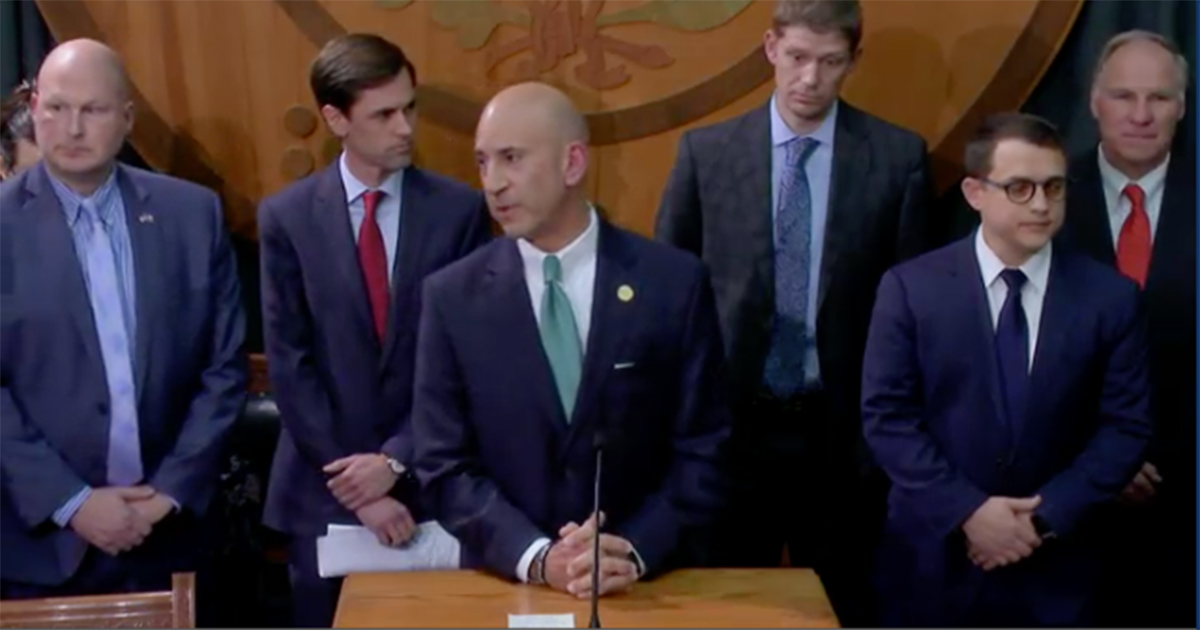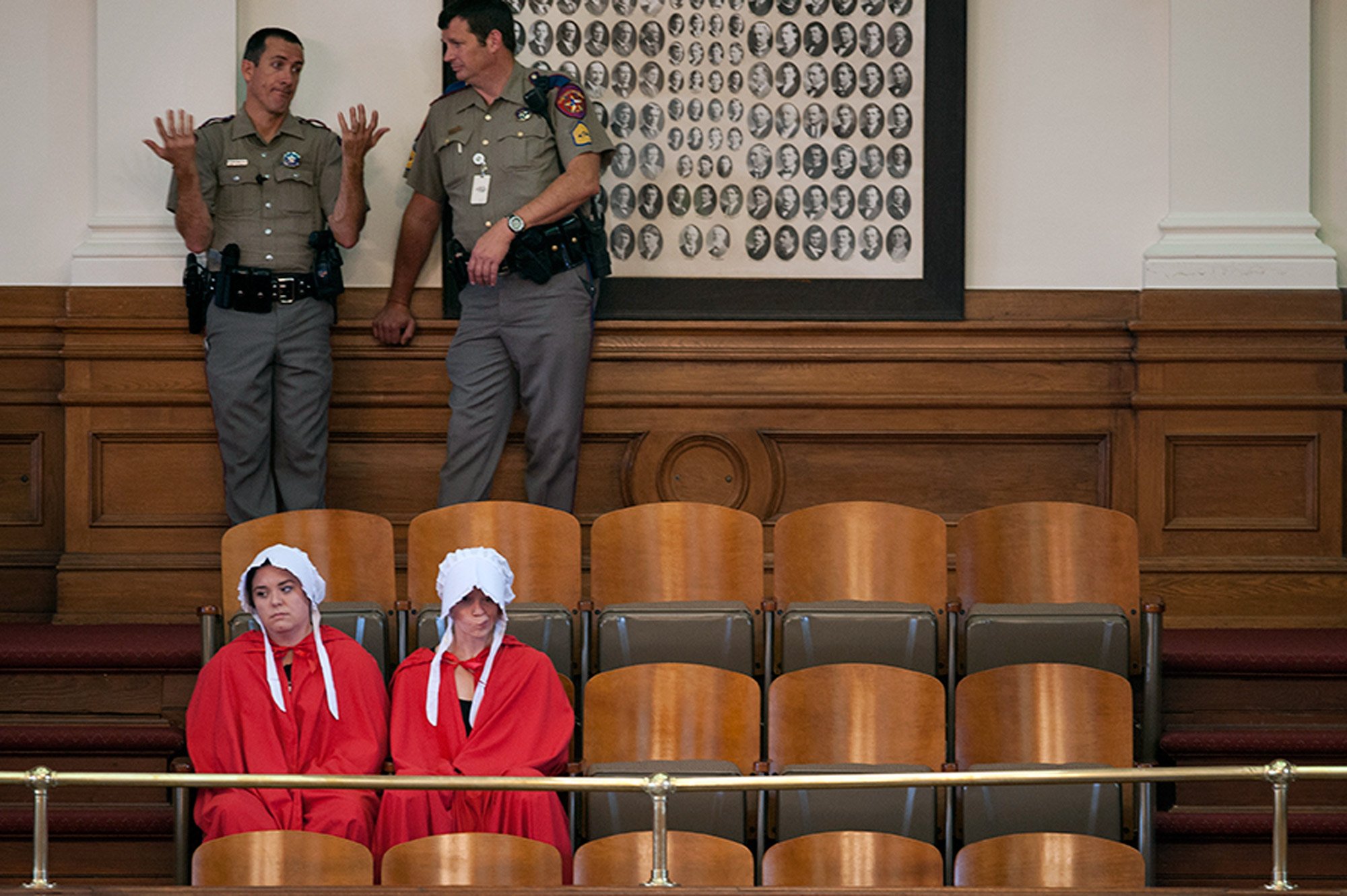
Texas Anti-Abortion Law Headed to the Supreme Court
A decision is expected next summer.

Texas’ omnibus anti-abortion law is headed to the Supreme Court in a landmark case that is likely to determine the future of abortion restrictions in the United States.
After two years of legal challenges to HB 2, the nation’s highest court announced Friday that it will take up two of the controversial law’s restrictions, one concerning hospital admitting privileges and another concerning facility requirements. The court is expected to make a ruling in the summer of 2016; the outcome of the case will signal whether anti-abortion lawmakers in other states can, constitutionally, establish restrictions similar to those in Texas.
Passed in 2013 despite a 13-hour filibuster that shot state Senator Wendy Davis into the national spotlight, HB 2 mandates that doctors who perform abortions have admitting privileges at nearby hospitals and requires abortion facilities to operate as hospital-like ambulatory surgical centers. It also heavily restricts the prescription of medication abortions and bans abortion after 20 weeks.
In a statement released just after SCOTUS’ announcement on Friday, one of the independent abortion providers suing to block the law said her heart was “filled with hope.”
“Although this is the first step in a much longer process,” said Amy Hagstrom-Miller, CEO of Whole Woman’s Health, the lead plaintiff in the case against HB 2. “I am hopeful that the Supreme Court will uphold the rights that have been in place for four decades and reaffirm that every woman should be able to make her own decision about continuing or ending a pregnancy.”
Reproductive rights advocates also praised the court’s decision to take up HB 2. A group of Texas abortion funds — nonprofits that assist patients in paying for travel and procedure costs — issued a joint statement saying they have “seen the devastating effects of clinic closures” and are “pleased” that SCOTUS will take the case.
If allowed to go into full effect, HB 2 could force all but the nine Texas abortion providers already operating as ambulatory surgical centers to close their doors. Before HB 2 passed, Texas had over forty legal abortion clinics. Today, it has 18.
Most abortion providers would have to invest millions in building new facilities, or modifying existing clinics, to comply with the law, which was criticized by the mainstream medical community as medically unnecessary and potentially dangerous to women’s health.
According to the Texas Policy Evaluation Project at the University of Texas at Austin, wait times for abortion have increased in the wake of HB 2, forcing more patients to get abortions later in their pregnancies.


